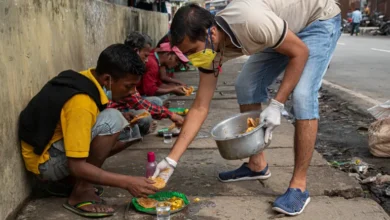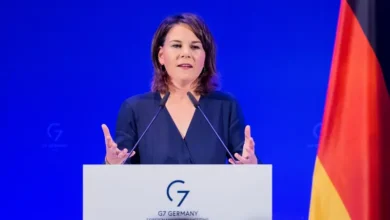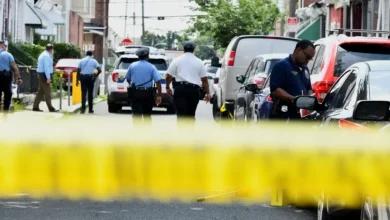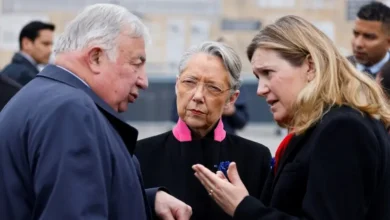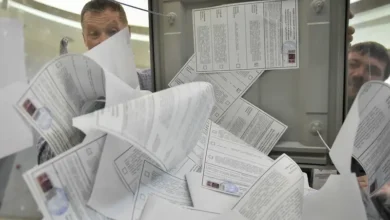‘It’s not about Raygun’: Breakdancers speak out on Olympics row
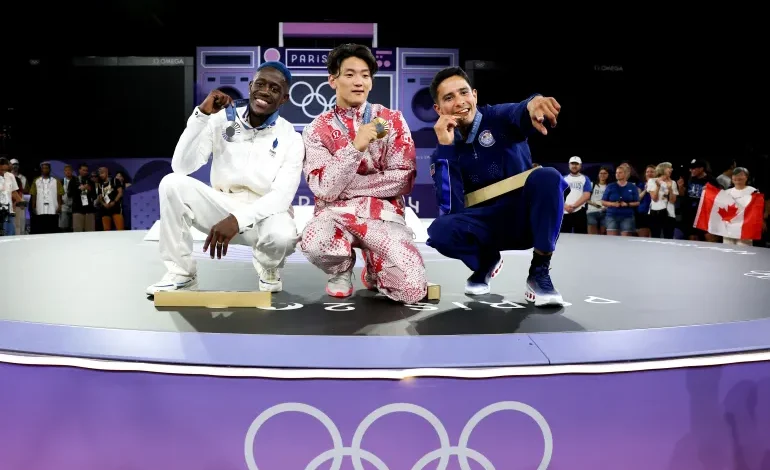
The worst thing about the uproar that erupted when an Australian breakdancer received zero points for her performance at the Olympics was not the slightly bizarre “kangaroo hop” she performed, say the renowned, New York-based breakdance champions Gabriel “Kwikstep” Dionisio and Ana “Rokafella” Garcia.
The particularly devastating angle to the whole mess – “frustrating, insulting, offensive” is how Rokafella puts it; “burning the scene” is how Kwikstep sees it – was that it completely overshadowed the other performers, some of whom did win medals and “made an incredible impression on that dance floor”.
It’s a huge shame, they say, because dancers such as Ami Yuasa (B-Girl Ami) from Japan who won the gold medal in the women’s (“b-girls”) breaking competition and Philip Kim (B-Boy Phil Wizard) from Canada who won a gold medal for the men’s (“b-boys”) competition, should have come away from the games covered in glory.
Many in the breaking community had hoped the art form would grow in popularity and attract a wider audience after the International Olympic Committee announced that it would become an official sport at the Paris 2024 games.
Instead, the art was roundly derided and mocked as the performance by university professor-turned-b-girl Rachael Gunn – known as Raygun in breakdancing circles – went viral on social media. The criticism even extended to a parody on The Tonight Show Starring Jimmy Fallon in the United States.
There were also accusations of cultural appropriation as Raygun – a white Australian – was seen as mocking breaking, which has roots in American Black and Latino culture. Malik Dixon, who is from New York but currently lives in Australia, told the Australian Broadcast Corporation (ABC): “It just looked like somebody who was toying with the culture and didn’t know how culturally significant it was being the first time in the Olympics and just how important it was to people who really cherish hip-hop and one of the elements of hip-hop, which is breakdancing.”
Paris Olympics 2024 was the first time breakdancing – called “breaking” – was classed as an Olympic sport. Breaking is derived from the word “break”, which refers to the instrumental sections of songs, particularly in funk, soul and hip-hop music. It was during these breaks that dancers would showcase their moves to the beat, hence the term “breaking”.
At the Paris Olympics, the breaking competitions – known as “battles” – took place at the city’s iconic Place de la Concorde, its largest public square and the designated “cool corner” for “urban” sports such as skateboarding, BMX biking and breaking.
Kwikstep and Rokafella, a married b-boy and b-girl couple who have been famous on the New York breakdancing scene since the 1980s when the dance style was still in its infancy, watched intently from afar.
Kwikstep has judged breakdance contests such as Battle of the Year in Germany, the Notorious IBE in the Netherlands and R-16 Korea and served as a judge for the Red Bull BC One competition, one of the biggest international breakdance events, this year in Rio de Janeiro.
Rokafella is a professional hip-hop dancer and choreographer who has also judged many competitions and co-founded with Kwikstep the nonprofit Full Circle Productions, dedicated to teaching young people about the political roots and future of breakdancing. Neither was involved with the breaking competition at the Paris Olympics this year, however.
Al Jazeera talked to them about their impressions of this year’s event, the fallout when Raygun hit the headlines, and the fight for civil rights which lies at the root of their art.

